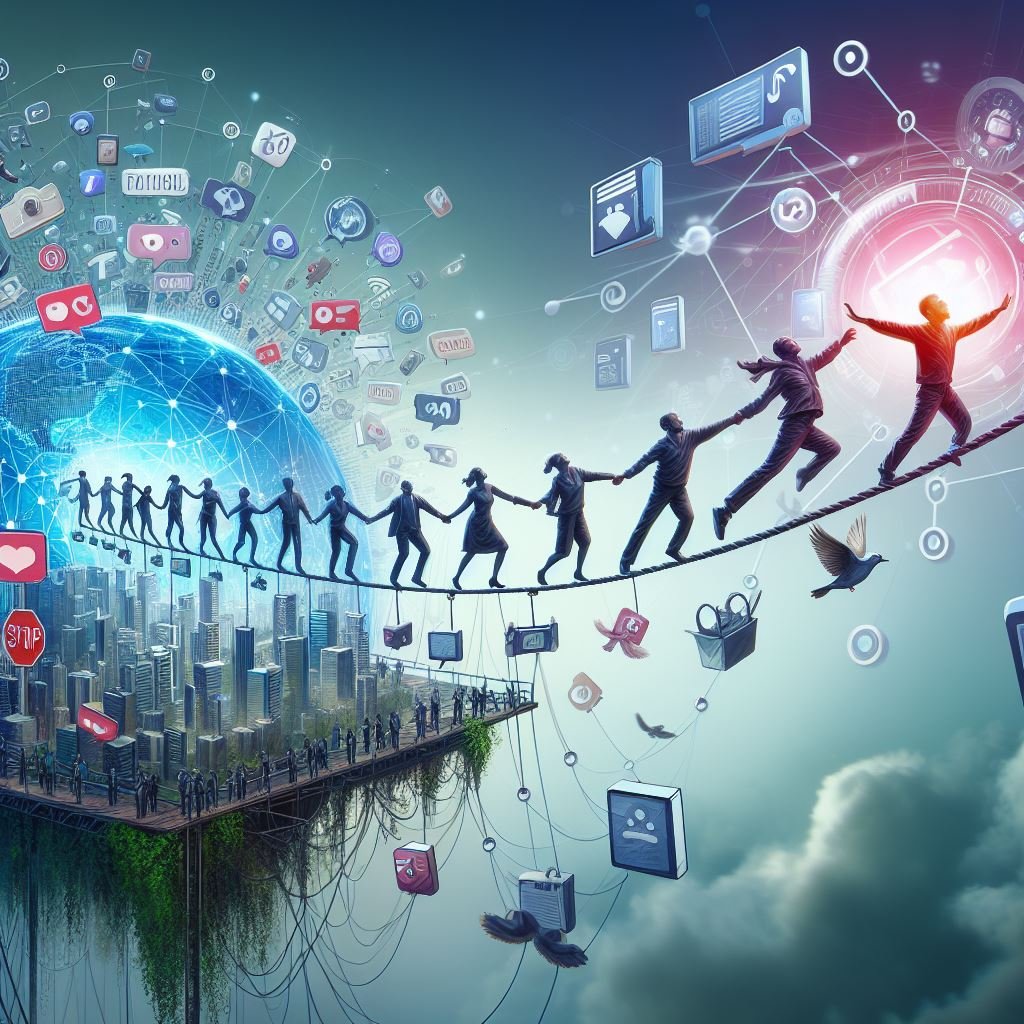Social Media and Democracy: A Symbiotic Dance on the Tightrope of Progress
The rise of social media has irrevocably altered the landscape of democratic discourse. Once confined to town squares and newspapers, political conversations now unfold in an unprecedented digital agora, where billions of voices clamor for attention, information, and influence. This article delves into the complex and often tumultuous relationship between social media and democracy, exploring both the transformative potential and the inherent challenges that arise from this digital dance.
Promising Prospects:
- Amplifying Marginalized Voices: Social media empowers individuals and groups traditionally excluded from mainstream media to share their perspectives and challenge the status quo. This can promote diversity of thought and foster more inclusive political landscapes.
- Democratizing Information Access: Platforms like Twitter and Facebook provide unfiltered access to news and political discourse, bypassing traditional gatekeepers and potentially challenging monopolies on information. This can lead to a more informed citizenry and more robust public debate.
- Mobilizing Civic Engagement: Social media facilitates social movements and grassroots activism, enabling citizens to organize, coordinate, and amplify their demands. This can lead to increased political participation and hold elected officials accountable.
- Transparency and Accountability: Social media allows citizens to directly scrutinize politicians and hold them accountable for their actions. The constant online spotlight can deter corruption and promote greater transparency in governance.
Perilous Pitfalls:
- Echo Chambers and Filter Bubbles: Algorithms often personalize news feeds and content recommendations, creating echo chambers where individuals are primarily exposed to information that reinforces their existing beliefs. This can exacerbate polarization and hinder healthy debate.
- Disinformation and Fake News: The ease and speed of information sharing on social media create fertile ground for the spread of misinformation and fake news. This can manipulate public opinion, undermine trust in institutions, and distort democratic processes.
- Foreign Interference and Manipulation: Malicious actors can exploit social media to sow discord, manipulate elections, and undermine democratic values. This raises concerns about national security and the integrity of electoral processes.
- Cyberbullying and Hate Speech: Online anonymity can embolden some users to engage in cyberbullying and hate speech, creating hostile environments that stifle free speech and discourage marginalized voices from participating in public discourse.
Navigating the Tightrope:
The challenges posed by social media necessitate a concerted effort from diverse stakeholders to ensure its positive contribution to democracy. Here are some potential solutions:
- Promoting Media Literacy: Equipping citizens with the skills to critically evaluate information online is crucial to combatting misinformation and fake news. Educational programs and awareness campaigns can play a vital role in this endeavor.
- Holding Platforms Accountable: Social media platforms need to be held accountable for the content they host and the algorithms they employ. Regulations and content moderation policies must be implemented to curb the spread of harmful content and ensure user safety.
- Fostering Constructive Dialogue: Initiatives that encourage respectful and productive online discourse can help bridge divides and promote empathy and understanding across ideological lines.
- Investing in Civic Technology: Supporting the development of tools and platforms that promote transparency, accountability, and citizen engagement can strengthen democratic institutions and empower citizens.
The Future of the Dance:
The relationship between social media and democracy remains a work in progress, a constant dance on the tightrope of progress, fraught with risks and opportunities. The choices we make today, as individuals, platforms, and policymakers, will determine whether this digital agora becomes a breeding ground for division and misinformation or a vibrant space for inclusive dialogue, informed participation, and ultimately, a stronger democracy.
Remember, this is just the beginning of the conversation. Further exploration into specific aspects of this complex relationship is crucial. Consider delving deeper into:
- Case studies of how social media has impacted specific elections or social movements.
- Research on the psychological and sociological effects of social media use on political engagement.
- Discussions about the ethical implications of algorithms and content moderation policies.
By actively engaging with these complexities and fostering open dialogue, we can pave the way for a future where social media serves as a powerful tool for empowering citizens and strengthening the foundations of democracy.
- #SocialMediaDemocracy
- #DigitalCitizenship
- #DemocracyInfluence
- #SocialMediaProgress
- #DemocracyEngagement
- #TechandDemocracy
- #DigitalDemocracyDance
- #CivicTech
- #InformedCitizen
- #DigitalParticipation
- #DemocracyTightrope
- #SocialJusticeTech
- #ProgressiveMedia
- #DemocracyDialogue
- #MediaForChange
- #SocialImpactDemocracy
- #TechAndSociety
- #DemocracyInAction
- #SocialMediaEthics
- #DemocracyBalance

